Chapter: Electrical machines : Electromechanical Energy Conversion and Concepts in Rotating Machines
Solved Problems - Electromechanical Energy Conversion and Concepts in Rotating Machines
SOLVED
PROBLEMS
Example 1:
An
actuator with a rotating vane is shown in Fig. 3.26. You may assume that the
permeability of both the core and the vane are infinite ( μ -> ¥ ). The
total air-gap length is 2g and shape of the vane is such that the effective
area of the air gap can be assumed to be of the form
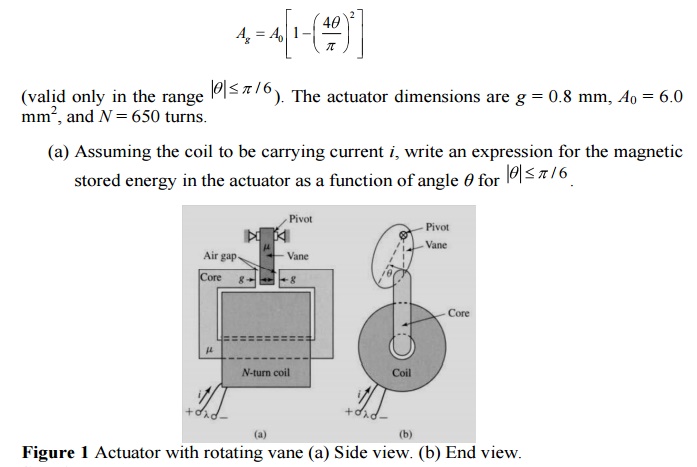
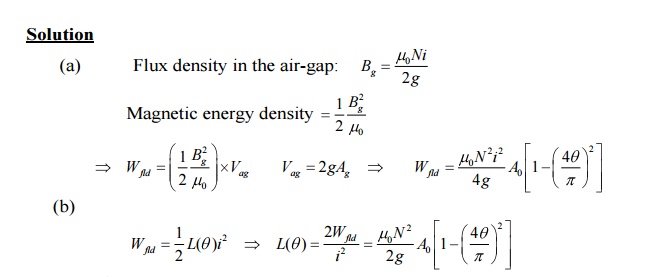
Example 2:
As shown
in Fig. 2, an N-turn (N = 100) electromagnet is to be used to
lift a slab of iron of mass M. The
surface roughness of the iron is such that when the iron and the electromagnet
are in contact, there is a minimum air gap of gmin = 0.18 mm in each
leg. The electromagnet cross-sectional area Ac
= 32 cm2 and coil resistance is 2.8 Ω. Calculate the minimum coil
voltage which must be used to lift a slab of mass 95 kg against the force of
gravity. Neglect the reluctance of the iron.
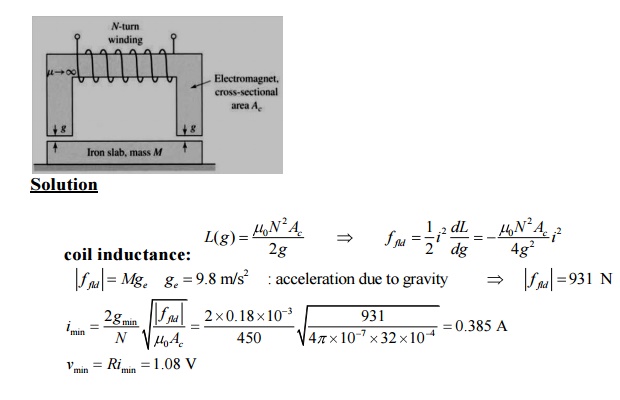
Example :3
An
inductor is made up of a 525-turn coil on a core of 14-cm2
cross-sectional area and gap length 0.16 mm. The coil is connected directly to
a 120-V 60-Hz voltage source. Neglect the coil resistance and leakage
inductance. Assuming the coil reluctance to be negligible, calculate the
time-averaged force acting on the core tending to close the air gap. How would
this force vary if the air-gap length were doubled?
Solution
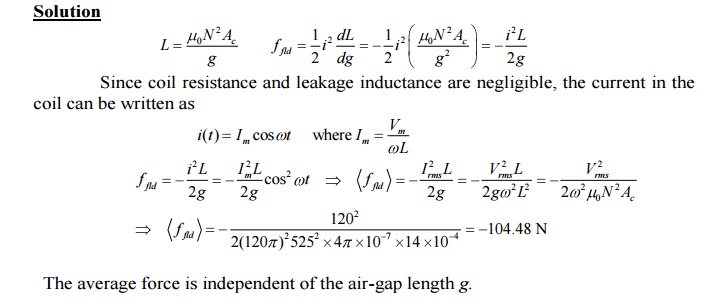
Example 5:
Two
windings, one mounted on a stator and the other on a rotor, have self- and
mutual inductances of
L11= 4.5 H
L22= 2.5 H
L12 = 2.8cosθ H
where θ is the angle between the axes of the
windings. The resistances of the windings may be neglected. Winding 2 is
short-circuited, and the current in winding 1 as a function of time is il = 10 sin ωt A.
a. Derive
an expression for the numerical value in newton-meters of the instantaneous
torque on the rotor in terms of the angle θ.
b.
Compute the time-averaged torque in newton-meters
when θ = 45°.
If the
rotor is allowed to move, will it rotate continuously or will it tend to come
to rest? If the latter, at what value of θ0
?
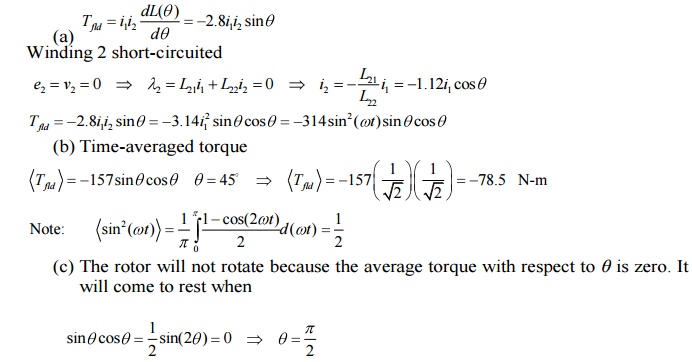
Example 6:
A
loudspeaker is made of a magnetic core of infinite permeability and circular
symmetry, as shown in Figs. 3.37a and b. The air-gap length g is much less than the radius r0 of the central core. The
voice coil is constrained to move only in the x direction and is attached to the speaker cone, which is not shown
in the figure. A constant radial magnetic field is produced in the air gap by a
direct current in coil 1, il
= I1. An audio-frequency
signal i2 = I2 cos(ωt) is then applied to the voice coil. Assume the voice coil to be
of negligible thickness and composed of N2
turns uniformly distributed over its height h.
Also assume that its displacement is such that it remains in the air gap (0 £ x £ l-h)
(a)
Calculate the force on the voice coil, using the
Lorentz Force Law (Eq. 3.1).
(b)
Calculate the self-inductance of each coil.
(c) Calculate the mutual inductance between the coils. (Hint: Assume that current is applied to the voice coil, and calculate the flux linkages of coil 1. Note that these flux linkages vary with the displacement x.
(d) Calculate the force on the voice coil from the coenergy Wfld .
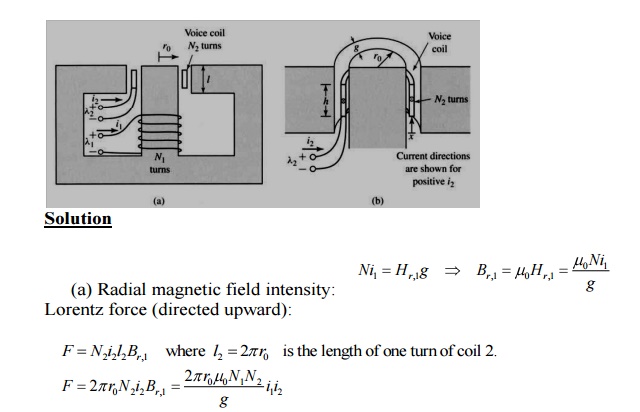
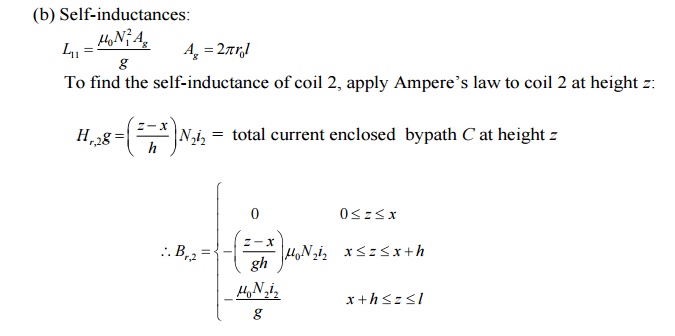
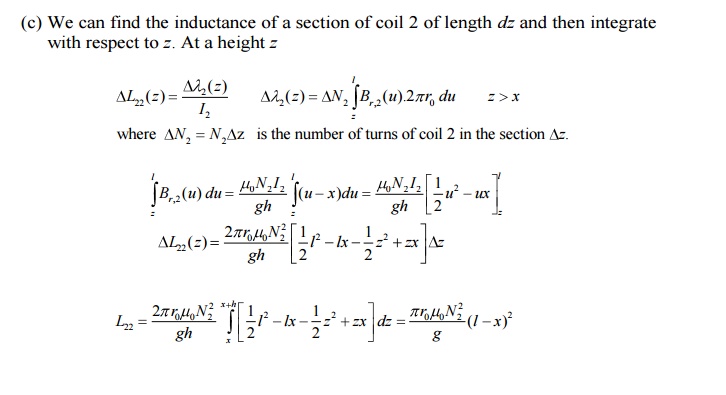
Related Topics